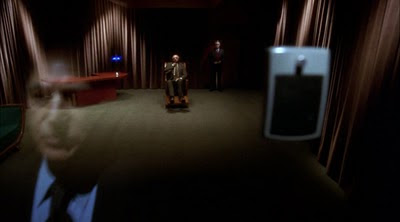Directors of the Decade
The ever-wonderful Matt Zoller Seitz has written a great feature for Salon.com -- "Directors of the Decade: The Sensualists". Actually, this is one of ten features Seitz is writing for Salon about "Directors of the Decade", but for me this is the group that matters most, because it includes Hou Hsiao-hsien, David Lynch, Terrence Malick, Michael Mann, and Wong Kar-Wai, some of my absolute favorites, though I had never thought of them as a group before. Or maybe I have -- I've been thinking a lot recently about why Lynch, Malick, and Mann in particular appeal to me so deeply. (I love some of Wong Kar-Wai's films, too -- 2046, In the Mood for Love, and especially Happy Together, though My Blueberry Nights proved nearly unwatchable and Ashes of Time, in either version, left me cold. Hou Hsiao-hsien I hadn't really thought of in relation to the others, and I'm least familiar with his work, having only seen Flight of the Red Balloon and The Puppetmaster.)
Here's how Seitz defines the group:
(If my preoccupations of late seem mostly to be with the world of cinema, you're right. A profound sense of having burned out on prose fiction has been replaced by a deeper fascination for film and film criticism than I've felt for years. [The timing is appropriate, since I'm teaching an intro to film course next term, about which more later.] I always return to prose fiction -- it is, in so many ways, the foundation of what I know -- but sometimes need to take a little break.)
Here's how Seitz defines the group:
The sensualists are bored with dramatic housekeeping. They're interested in sensations and emotions, occurrences and memories of occurrences. If their films could be said to have a literary voice, it would fall somewhere between third person and first -- perhaps as close to first person as the film can get without having the camera directly represent what a character sees.Bingo -- if I could sum up the mix of aesthetics and worldview that most appeals to me, that reflects and extends my own take on how it feels to live, I doubt I could come up with a better description than Seitz has. Indeed, it reveals succinctly what I most favor in art. That's not, of course, to say that all other approaches are wrong or don't work or whatever, but that the fastest, surest way I've found toward the pleasures of recognition (of life, of living, of being and time) and the evocation of emotion (without what feels to me to be sentimentality) is via exactly what Seitz describes.
Yet at the same time sensualist directors have a respect for privacy and mystery. They are attuned to tiny fluctuations in mood (the character's and the scene's). But they'd rather drink lye than tell you what a character is thinking or feeling – or, God forbid, have a character tell you what he's thinking or feeling. The point is to inspire associations, realizations, epiphanies -- not in the character, although that sometimes happens, but in the moviegoer.
You can tell by watching the sensualists' films, with their startling cuts, lyrical transitions, off-kilter compositions and judicious use of slow motion as emotional italics, that they believe we experience life not as dramatic arcs or plot points or in-the-moment revelations, but as moments that cohere and define themselves in hindsight -- as markers that don't seem like markers when they happen.
(If my preoccupations of late seem mostly to be with the world of cinema, you're right. A profound sense of having burned out on prose fiction has been replaced by a deeper fascination for film and film criticism than I've felt for years. [The timing is appropriate, since I'm teaching an intro to film course next term, about which more later.] I always return to prose fiction -- it is, in so many ways, the foundation of what I know -- but sometimes need to take a little break.)
